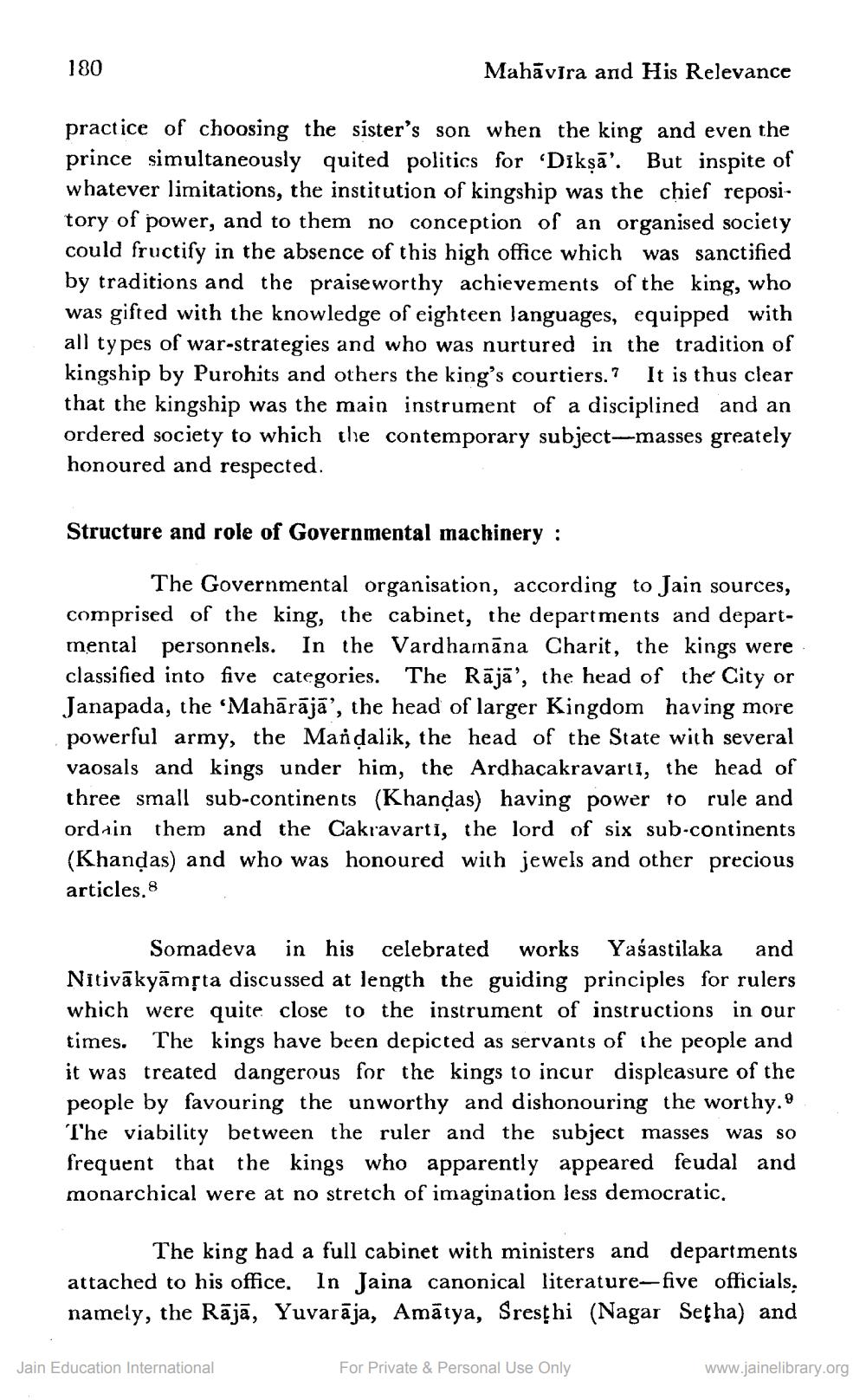________________
180
Mahāvīra and His Relevance
practice of choosing the sister's son when the king and even the prince simultaneously quited politics for ‘Dikṣā'. But inspite of whatever limitations, the institution of kingship was the chief repository of power, and to them no conception of an organised society could fructify in the absence of this high office which was sanctified by traditions and the praiseworthy achievements of the king, who was gifted with the knowledge of eighteen languages, equipped with all types of war-strategies and who was nurtured in the tradition of kingship by Purohits and others the king's courtiers.? It is thus clear that the kingship was the main instrument of a disciplined and an ordered society to which the contemporary subject-masses greately honoured and respected.
Structure and role of Governmental machinery :
The Governmental organisation, according to Jain sources, comprised of the king, the cabinet, the departments and departmental personnels. In the Vardharnāna Charit, the kings were classified into five categories. The Rāja', the head of the City or Janapada, the ‘Mahārājā', the head of larger Kingdom having more powerful army, the Mandalik, the head of the State with several vaosals and kings under him, the Ardhacakravarti, the head of three small sub-continents (Khandas) having power to rule and ordain them and the Cakravarti, the lord of six sub-continents (Khandas) and who was honoured with jewels and other precious articles. 8
Somadeva in his celebrated works Yaśastilaka and Nitivākyämsta discussed at length the guiding principles for rulers which were quite close to the instrument of instructions in our times. The kings have been depicted as servants of the people and it was treated dangerous for the kings to incur displeasure of the people by favouring the unworthy and dishonouring the worthy. 9 The viability between the ruler and the subject masses was so frequent that the kings who apparently appeared feudal and monarchical were at no stretch of imagination less democratic.
The king had a full cabinet with ministers and departments attached to his office. In Jaina canonical literature-five officials, namely, the Rājā, Yuvarāja, Amātya, Sresthi (Nagar Setha) and
Jain Education International
For Private & Personal Use Only
www.jainelibrary.org




